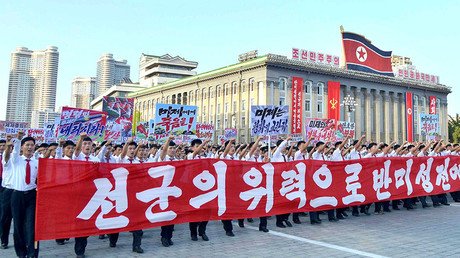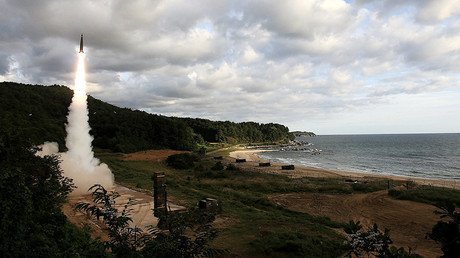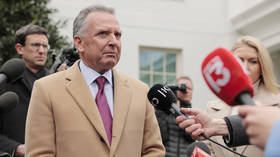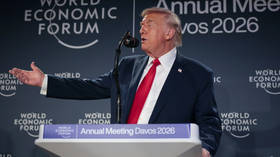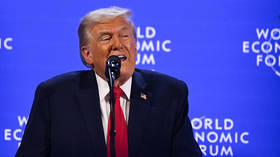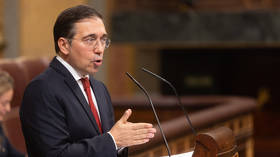‘Pyongyang will fear us more’: South Korea wants to transfer wartime army command from US
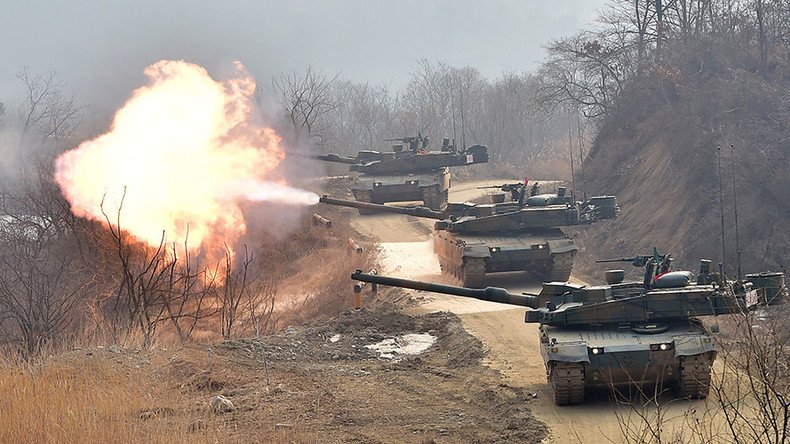
South Korean President Moon Jae-in has called for the long-delayed transfer of its wartime operational control (OPCON) from the Pentagon to be speeded up, and says the country must develop its own military capacity to "punish” North Korea’s “provocations.”
"North Korea will fear us more and the people will have more faith in our military when we have wartime operational control of our military. The transfer of the wartime operational control based on our strong defense capabilities will lead to a great development of our military's structure and capabilities,”said Moon during a speech to mark the 69th Korean Armed Forces Day at a navy base in Pyeongtaek, south of Seoul.
Between 1950, when General Douglas McArthur took charge of the South Korean army, and 1994, a US general served as its commander. Since then, Seoul has taken back peacetime control of its armed forces, but would delegate command to the US in case of a conflict, though Korean politicians do formally have a veto.
The handover of OPCON to Korean generals has been discussed, touted and negotiated for decades, but in 2014 Seoul asked Washington to postpone it indefinitely, to give the Asian country a chance to build its “core military capabilities.”
Moon, elected in May this year, now believes that South Korea has to be more proactive in strengthening its army, in the wake of a series of missile and nuclear tests by the North.
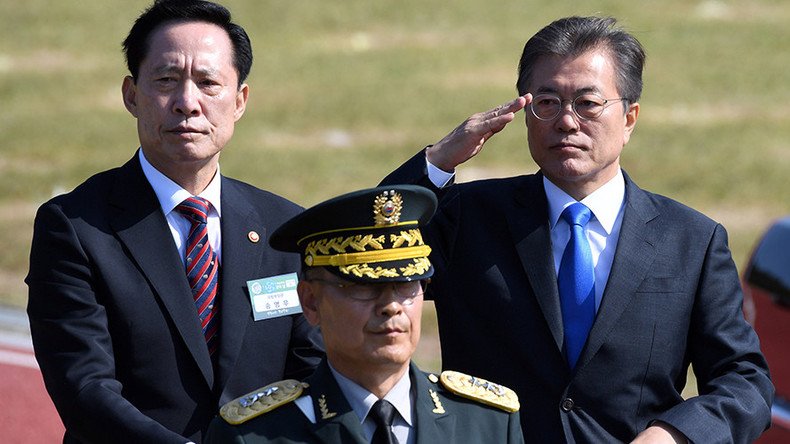
"Without strong defense, we can neither protect nor make peace," Moon told the 3,700 military officers in attendance at an occasion celebrated with pomp. "Securing counter capabilities against North Korean nuclear and missile threats is the most urgent task. We must further strengthen our offense-based defense system Kill-Chain and Korean missile defense system."
South Korea currently operates a so-called 'three axis' defense system against its northern neighbor. The Kill Chain system would carry out a pre-emptive first strike against hostile launch sites, the Korean Air and Missile Defense (KAMD) system would attempt to intercept any missiles that would cross the border, and the Korea Massive Punishment and Retaliation (KMPR) plan intends to obliterate the entirety of North Korea if its missiles do hit targets down south.
"We will stand up against reckless provocations with strong punishment," Moon promised in his speech.
Korea’s conservative opposition parties have said that the handover could weaken the bond between Seoul and Washington, lessen the resources the US spends on its Asian ally, and further embolden Pyongyang.
The US currently stations 28,500 troops on South Korean territory, where it has deployed its sophisticated THAAD missile defense system – despite objections from China and Russia – and conducts massive annual joint drills.
But Moon believes that the ties across the Pacific are secure, and that South Korea is strong enough for self-reliance.
"I believe our military has sufficient capabilities. Together with the people, I have confidence in our military," said Moon.
During his short time in office Moon has repeatedly attempted to stage talks with North Korea over diplomatic rapprochement and economic cooperation, but Pyongyang has refused to talk to South Korea, which it officially regards as an illegitimate state.
Meanwhile tensions with the US have continued to rise, with Donald Trump threatening to “totally destroy” North Korea if it doesn’t curtail its strategic missile program during a recent UN General Assembly speech.
In response, North Korean leader Kim Jong-un has sent a letter to the United Nations accusing the US president of “mentally deranged behavior,” and commenting that “a frightened dog barks louder.”
